What about night sweats in diabetics, are they serious?
Some of my more careful diabetic friends will come to me and ask me what is going on with the night sweats that I have been experiencing lately. How does it affect the body and is it serious?
This is a very good question, and we have always proposed that people with diabetes should carefully observe how their bodies change during the course of their illness and communicate with their doctors when there are changes.
There are many reasons why diabetics sweat in the evening or at night, some of which are harmless and some of which can be life-threatening and must be paid special attention to.
There are several common causes of night sweats:
Low blood sugar:
This is a more common cause of sweating in diabetic friends. Hypoglycemia occurs mainly due to diet, exercise and medication. Nocturnal hypoglycemia can occur due to too little food at dinner and too much exercise after meals. The use of hypoglycemic drugs such as insulin and insulinotropic agents is too large, the use of long and short-acting drugs is wrong, and the use of drugs without meals may cause severe hypoglycemia, and the patient will experience sweating, panic, dizziness, and blurred consciousness, or even coma.
The appearance of abnormal mentation is a more serious case of hypoglycemia and must be treated promptly. For patients using insulin or insulinotropic agents, it is important to eat regularly and accurately, take medication, and be careful to prepare candies and food at the bedside to prevent sudden attacks of hypoglycemia and inability to replenish sugar in a timely manner when activities are not possible, especially for elderly people who live alone.
Myocardial ischemia:
This is a more dangerous situation. When diabetic patients experience acute myocardial ischemia, angina pectoris or myocardial infarction, they will experience discomfort and pain in the anterior region of the heart, chest tightness, squeezing pain, and other more typical situations, and the site of the pain may also be in the left shoulder, neck, and teeth. However, for diabetic patients, these typical symptoms may not occur or all of them may occur, but usually there will be sweating, and there will be chest tightness at the same time.
If these symptoms occur, take a blood glucose test as soon as possible if you are able to do so, or eat sugary foods if you are not able to do so. If your symptoms are not relieved, call an emergency number as soon as possible to seek the help of a medical professional.
Diabetic neuropathy:
Diabetic patients with autonomic neuropathy may experience sweating, which is characterized by abnormal localized sweating, such as sweating on the left side of the body and no sweating on the right side, or sweating on the right side of the body and no sweating on the left side; they may also have sweating in the upper half of the body and no sweating in the lower half, or sweating in the lower half of the body and no sweating in the upper half; and occasionally there is sweating in a particular part of the body such as the back. This sweating condition usually lasts for some time, and symptoms such as postural hypotension, limb numbness, and neurogenic bladder may occur.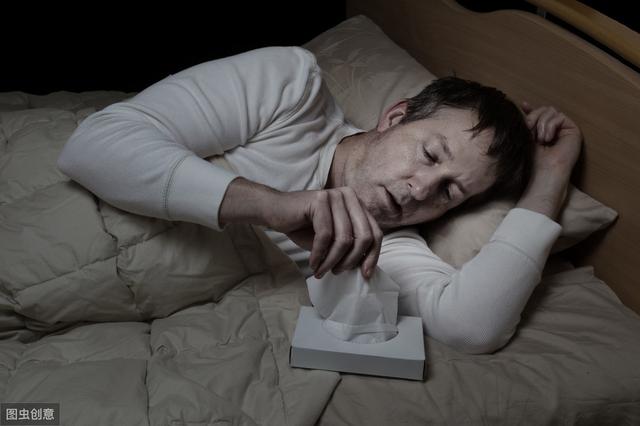
Nutritional nerve therapy is effective, but the basis is that blood sugar must be stabilized in order to obtain a better therapeutic effect.
Disorders of sex hormone levels:
Commonly known as menopause, these patients may suffer from episodes of hot and dry sweating due to disturbances in sex hormone levels, which may lead to abnormal vasodilatation and contraction of blood vessels, and may be accompanied by sleep disturbances, which may further lead to sweating symptoms.
Some of the symptoms that appear at particular times are more common in women aged 45-55 and are also found in men.
Usually lasts for a period of time can disappear on its own, you can eat soy products and other foods containing estrogen-like hormones, if the symptoms are more pronounced, you can take the regulation of autonomic nervous system drugs such as ghrelin, can also be supplemented with estrogen therapy.
Tuberculosis:
Tuberculosis infection is caused by tuberculosis bacillus, and the susceptible sites can be pulmonary tuberculosis, bone tuberculosis, mesenteric tuberculosis, etc., among which pulmonary tuberculosis is the most common. Patients may show symptoms of tuberculosis toxicity such as low fever, night sweats, emaciation, weakness, etc. Depending on the site of infection, cough, chest pain, bone pain, abdominal pain, blood in urine, etc. Blood sedimentation rate increases, tuberculin test is positive, and foci may be seen in the site of infection in imaging examination.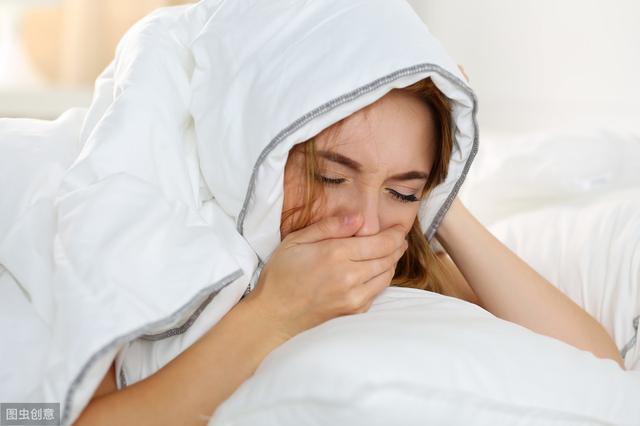
Early, regular, combined, prolonged, and adequate antituberculosis treatment.
When diabetic patients are combined with tuberculosis, the medication requirement is more cautious. Because most of the anti-tuberculosis drugs have toxic effects on liver and kidney, if combined with the use of oral hypoglycemic drugs, then the burden on the liver and kidneys is heavier, and liver and kidney damage may occur, therefore, for diabetic patients with combined tuberculosis, it is recommended that insulin therapy, this is because of insulin's precise effect of lowering glucose, there is no damage to the function of liver and kidney, and it is able to reduce the varieties of hypoglycemic drugs and the use of the amount of drugs.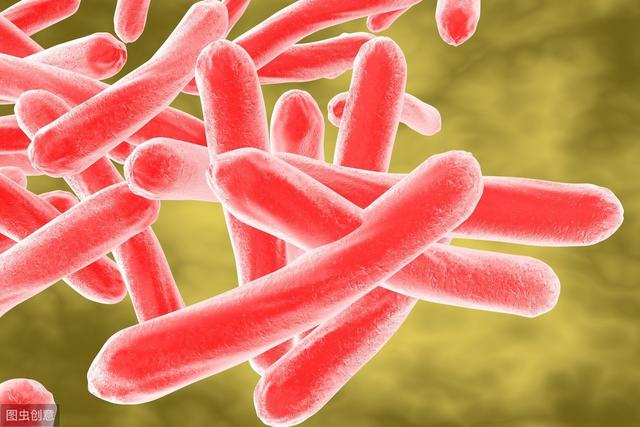
Diabetic patients, due to the relatively weak immune ability, blood and body fluids contain high sugar, which is conducive to the growth and reproduction of tuberculosis bacteria, the chemotaxis ability of white blood cells is reduced, is the early stage of the infection is not easy to be controlled, there may be the proliferation of tuberculosis bacilli, and the clinical symptoms of the disease are more serious. Currently the incidence of tuberculosis is increasing, the diabetic population is more, also shows a higher incidence of diabetes combined with tuberculosis. Therefore, it is necessary to pay close attention to the possible tuberculosis situation in the clinic and do a good job of protection.
Heat:
You will sweat. Cover with a thinner blanket or turn on the air conditioner or fan, and the sweating may get better! Note that in this case, diabetics should be careful to stay hydrated.
To summarize:
Night sweats in diabetic friends should not be underestimated and all the above possibilities should be taken seriously. Perform blood glucose monitoring to detect undetectable hypoglycemia, and perform regular examinations of electrocardiogram, cardiac ultrasound, and coronary CT or coronary angiography if necessary. Patients with neuropathy should be treated promptly. Patients with unexplained wasting should promptly exclude the possibility of tuberculosis and tumor.
I'm Dr. Sun, follow Dr. Sun on Sugar and keep learning more quality health knowledge. If you have any questions, please leave a message and I will reply!
Dietitian Sugar to answer. Generally speaking, there are two possibilities for diabetics to sweat at night, one is the occurrence of nocturnal hypoglycemia, and the other is a symptom of diabetic autonomic neuropathy.

In the first case, nighttime hypoglycemia may occur when sugar lovers eat too little at dinner, or exercise too much after meals, or when they take medication improperly. Unknowingly occurring hypoglycemia during sleep will lead to nightmares and cold sweats all over the patient's body, seriously reducing the quality of sleep. And poor sleep will in turn cause uncontrolled blood sugar, so sugar lovers should try to avoid nighttime hypoglycemia. Sugar lovers with a tendency to hypoglycemia had better check their blood glucose before going to bed, if it is lower than 5.6 (the lower limit of blood glucose for sugar lovers can not be lower than 4.4, and lower than 3.9 belongs to hypoglycemia) it is recommended to eat something moderately before going to bed, such as eating a small slice of bread, drinking half a cup of yogurt, eating half an apple, eating half an orange, eating half a piece of corn, and so on.
In the second case, neuropathy occurs when glucose patients have poor blood sugar control for a long time, and autonomic neuropathy is one of them. Patients often appear abnormal sweating, which can be manifested in the face, but also in the limbs and trunk. Neuropathy is recommended to see a doctor in time and use some symptomatic drugs to control it. Of course, the most fundamental thing is to control the blood glucose standard, blood glucose control is good, the symptoms of abnormal sweating will also be improved.
I hope Sugar's answer can help you, more diabetes encyclopedia questions, welcome to follow us!
Thanks for the invite.
There must be many sugar lovers who find themselves suddenly waking up in the middle of the night, covered in sweat, but don't really understand what it is all about. Most of the reasons are due to hypoglycemia at night, while others who are always sweating may have peripheral neuropathy due to poor glycemic control, which can also lead to sweating at night. But if you often find yourself waking up in the middle of the night, sweating must be taken seriously, waking up in the middle of the night is the body's self-protection function, reminding us that it may be the emergence of hypoglycemia, and if there is a serious hypoglycemic condition without waking up, then it may be dangerous.
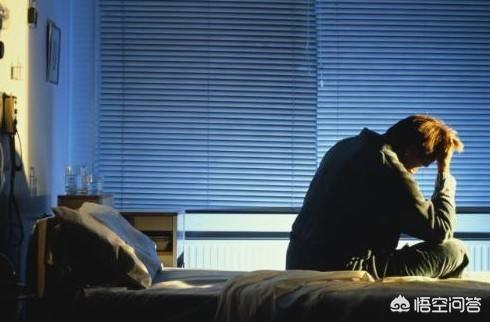
Sugar lovers should do more to prevent the symptoms of hypoglycemia at night, for example, control their diet at night, appropriate intake of staple foods, do not eat less because of the impact on blood sugar, staple food is the main food to provide energy for sugar lovers, because sugar lovers generally still take hypoglycemic drugs, injection of insulin, if the night of the less intake of staple foods, it is likely that hypoglycemia will be the symptom. At night, if you exercise more, you can add some fruit, and you can drink a glass of milk before going to bed, milk is rich in lactose, lactose can slowly release glucose, which has little effect on blood glucose, and it's also a very good food for preventing hypoglycemia at night.
Especially some sugar lovers especially want to eat dessert at night, but because they know that eating dessert at night may have a greater impact on blood sugar, so they take the liberty of taking more hypoglycemic drugs, insulin injections, but the effect of the drug and our own insulin action time and effect are different, their controllable range is much smaller, and it is very likely that the effect of the drug to immediately let the blood glucose drop rapidly in the middle of the night to cause hypoglycemia, so don't eat desserts like to eat more! Inject insulin and take more hypoglycemic drugs, if you feel that your blood sugar is not right, lower your blood sugar by exercising more.
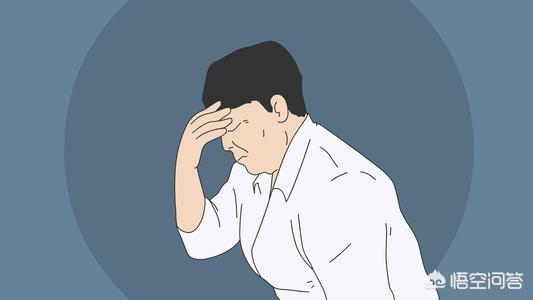
Diabetics may also sweat more as a result of autonomic neuropathy, and around 60% of them may eventually develop sweating disorders. Early symptoms may be increased pat content in the upper body, such as frequent sweating on the back of the chest, the tip of the nose, and sweat always hanging from the head. Because neuropathy may decrease lower body sweating, such as less foot sweating, increase upper body sweating to compensate. Control of blood sugar stability is the best way to organize neuropathy, if long-term blood sugar instability, blood flow through a large amount of glucose will continue to damage the finer blood vessels, resulting in damage to the body's veins, the general treatment of hyperhidrosis in patients with glucose is to improve blood flow is usually to slow down the blood stasis, and be able to improve the symptoms of sweating abnormalities.

Sweating more than the sugar lover is not too much anxiety, more listen to the doctor's instructions, the correct medication, insulin injection, and then through the combination of daily dietary improvements to jointly stabilize blood sugar, dinner strict control of sugar control, do not eat more or less, to avoid high-intensity exercise, bedtime can test their own blood glucose value, less than 5.4 is best supplemented with some low glycemic, slower glycemic food. Sugar lovers with hyperhidrosis can supplement vitamin B to protect the nervous system, or other anticholinergic drugs, supplement sufficient calcium to stabilize the regulation of the nervous system, and adhere to the appropriate daily exercise to maintain the blood usually.
People sweat in 2 ways
It's a way to dissipate heat and cool down.
After the run lasts a few minutes, the
The body began to sweat rapidly, that is, to dissipate heat;

One is caused by sympathetic nervous tension
Some people have sweaty palms when they see strangers.
It involves adrenaline.
adrenergic transmitters while acting on adrenergic receptors.
Did you run into a tiger and break out in a sweat?
--Sweating is controlled by the sympathetic nerves, and hyperhidrosis is caused by localized sympathetic excitation, for which there is no effective treatment in hospitals.
For diabetics, look at the amount of sweating and exactly when this symptom occurs ......
Then further determine, what is the physical condition now, without delaying the physical condition~
Welcome to leave a message.

Diabetics with complications of autonomic neuropathy sweat a lot, especially in the upper body. This is due toDisorders of glucose metabolism lead to vegetative dysfunction, resulting in increased secretion of sweat glands. In addition.Increased metabolic rate due to high blood sugar is also a cause of excessive sweating.
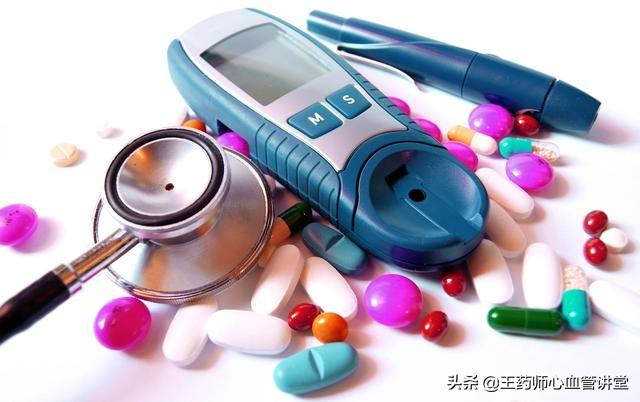
What about night sweats in diabetics, are they serious?
We know that during the onset of diabetes blood glucose levels rise above normal and many organs are infiltrated with high blood glucose concentrations, which can lead to complications.
Many people have the impression that "three more and one less" (eating more, drinking more, urinating more and losing weight) are the symptoms of diabetes, but in fact, diabetes can cause a variety of symptoms. For example, diabetics can develop retinopathy, nephrotic syndrome, macrovascular and microvascular circulatory disorders, peripheral neuropathy and autonomic dysfunction. So if these complications occur, they can also lead to symptoms.
The human sweat glands are innervated by the sympathetic nerve, when blood sugar is chronically higher than normal, it will cause vascular microcirculation disorders, leading to neuropathy, sympathetic nerve function will be disturbed, ultimately leading to the loss of control of the innervated sweat glands, manifested in unconscious excessive sweating, especially during sleep, and sometimes waking up to find that the top of the shirt is soaked through.
In addition, hypoglycemia can also cause the patient to sweat involuntarily. Hypoglycemia is an acute complication that may often occur in diabetics. When hypoglycemia occurs due to medication, diet, or exercise, symptoms such as palpitations, anxiety, sweating, and hunger can occur. Therefore, when a diabetic patient experiences profuse sweating with these symptoms, the first thing to consider is whether hypoglycemia has occurred.

What should diabetics do if they experience involuntary sweating?
1. Seek medical examination
When patients experience symptoms of excessive sweating, it is important to seek medical attention to check for complications. It is also important to monitor blood glucose regularly in your daily life to understand the fluctuation of blood glucose.
2、Control the blood sugar level
Diet should adhere to the principle of light, eat less greasy, fatty foods, eat more fresh vegetables, eat appropriate coarse grains, can supplement a large amount of dietary fiber, can effectively reduce the rate of postprandial blood glucose rise, on the control of blood glucose is very helpful. In addition, diabetic patients should adhere to physical exercise and ensure sufficient sleep. Diabetic patients should also actively take hypoglycemic drugs or inject insulin, do not stop taking drugs without authorization.
3、Don't lower your sugar too much
The last thing diabetic patients want to see is elevated blood sugar, however, hypoglycemia is no less harmful to the body than hyperglycemia, mild hypoglycemia only appears to have cold sweats, panic palpitations, dizziness and paralysis and weakness. However, severe hypoglycemia will bring irreversible damage to the central nervous system, making patients suffer from impaired consciousness, coma, and even life-threatening. Therefore, diabetic patients should follow the doctor's prescription of medication, replenish sugar after exercise, and eat reasonably to ensure stable blood sugar.
My dad was hospitalized, one night covered in sweat, immediately went to ask the doctor on duty, a measurement of blood glucose is too low, immediately hang glucose saline, and then blood glucose slowly normalized, according to the doctor said that hypoglycemia than hyperglycemia is also an emergency risk.
For diabetics, sweating alone is not scary, what is scary is that it is accompanied by other symptoms in addition to sweating.
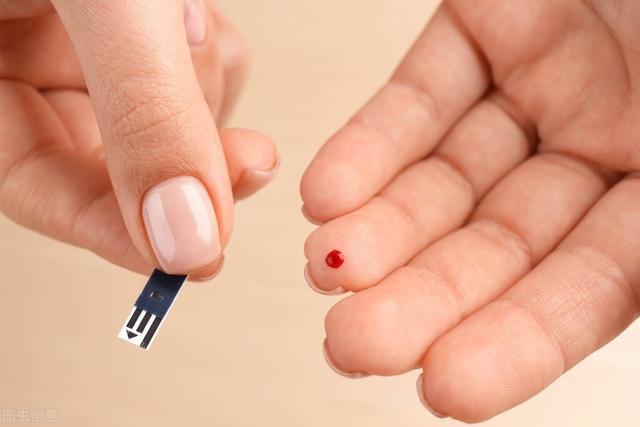
Diabetic patients, it is necessary to regularly take glucose-lowering drugs, and in taking glucose-lowering drugs at the same time, need to pay attention to one thing is the hypoglycemic reaction, hypoglycemic reaction is the main indication of panic, palpitations, accompanied by sweating as well as the feeling of hunger.
For people with mild hypoglycemic reactions, all symptoms can be corrected quickly by timely sugar supplementation. For example, drink sugar water, eat sugar cubes, or eat some egg cakes or the like. All of these should always be on hand for diabetes.
However, if you are an elderly or weak diabetic, you must pay more attention to avoid hypoglycemic symptoms. This is because patients with hypoglycemia may even become comatose, but coma is not necessarily a reaction to hypoglycemia. For such patients, family members must call 120 as soon as possible after discovery.
It is especially important to note that if the family is not medically competent and does not know first aid, it is not recommended to take it upon yourself to feed sugar water or food. Why? Because of the risk of aspiration. A few days ago, we saw such a patient. Family members found that the patient was unconscious, it is taken for granted that it is hypoglycemic coma, and then fed sugar water, we do not know how to feed the patient, found that the pulse oximetry is very low, and returned to the hospital to check the chest CT found that the lungs are full of water, the coma patient autonomic swallowing dysfunction, must not be forced to feed the water, or to feed the food.
So this is the time to ask, what do diabetics do when they sweat at night?
For diabetic patients, if you suddenly sweat at night, if you have a blood glucose measuring instrument at home, you can immediately give blood glucose measurement, and at the same time, you can take sugar cubes, or the handy cakes and buns at hand. If the blood glucose is really low, you can eat some easily digestible food with high sugar content. If the symptoms are relieved soon, you can stay away from the hospital for the time being.
If the patient is sweating and is unconscious, unresponsive or comatose, family members should call the police and 120 for help as soon as possible. At the same time, assist the patient to tilt his head to one side to avoid accidental inhalation. Meanwhile, if you have the conditions at home, immediately give the blood pressure and blood sugar measurement. If you find that the blood sugar is low, you can hold up the patient, so that the patient's head is slightly higher, and then little by little along the side of the mouth to feed some concentrated sugar water. Pay attention to a little bit of slow feeding, to avoid choking, to avoid accidental inhalation. Then wait for the arrival of 120.
As for the patient, is it serious for a diabetic to sweat at night?
This would need to be specific to the patient's condition. Simple sweating is not serious. But if it is pathologic sweating, it should not be taken seriously, because a lot of acute and serious diseases are accompanied by a sweating manifestation, such as myocardial infarction. The incidence of myocardial infarction is higher in diabetics than in normal people.
I am Healer Health, follow me for more health knowledge!
Many diabetic patients are plagued by excessive sweating, some can even wet pajamas and beds. Repeated wetting of clothing in the fall and winter seasons can easily lead to cold and infection, which brings great inconvenience to life.
Sweating a lot in diabetics is not really a minor problem, it is a warning of many diabetic complications to come.
1、Low blood sugar reaction
Diabetics are more prone to hypoglycemic reactions at night. Low blood glucose leads to sympathetic excitation and postganglionic fibers that stimulate increased secretion of sweat glands, resulting in increased sweating.
Sugar lovers can put some glucose at the bedside, and when hypoglycemic symptoms such as excessive sweating and palpitations occur at night, taking glucose solution can quickly relieve hypoglycemic symptoms.

2. Diabetic autonomic neuropathy
After diabetic autonomic nerve lesions involving sweat glands and causing abnormal secretion of sweat glands, diabetic patients will have symptoms of abnormal sweating, which commonly include hyperhidrosis, oligohidrosis, restrictive hyperhidrosis, and ingestive sweating. Hyperhidrosis in diabetics is mainly characterized by profuse sweating in the upper body, especially the head, chest and back.
Stabilizes blood sugar, nourishes nerves, improves microcirculation, and may relieve excessive sweating caused by autonomic neuropathy.
3、Diabetes combined with hyperthyroidism
Diabetic patients with abnormal blood sugar and insulin secretion disorders can easily cause other gland secretion disorders, the most common being autoimmune thyroid disease. Diabetes mellitus combined with hyperthyroidism is usually manifested as fear of heat, excessive sweating, panic, hand tremor, neck thickening, protruding eyeballs and other symptoms.
Diabetes mellitus combined with hyperthyroidism should be controlled promptly with hyperthyroidism medication.
4. Diabetes complicated by tuberculosis infection
Diabetics are mostly immunocompromised, and when diabetes is combined with Mycobacterium tuberculosis infection, symptoms such as night sweats, coughing up phlegm, weight loss, and low afternoon fever can occur.
When the above symptoms are met, it is recommended that the sugar patient undergoes relevant examinations, and if it is a complication of tuberculosis infection, it is recommended to seek medical treatment in time.
5. Diabetes mellitus combined with perimenopausal syndrome
If they are going through menopause, diabetics are also prone to excessive sweating, especially night sweats.
It can be relieved by paying attention to lifestyle modification, anti-anxiety, nutritional nerves, and estrogen replacement therapy.
6. Diabetes combined with depressive state
Influenced by neurobiological and psychosocial factors, etc., patients with tardive dyskinesia are prone to comorbid depressive states, and emotional tension in depressive states is prone to manifestations of excessive sweating.
Excessive sweating caused by depression can be relieved by psychological interventions as well as antidepressant medication.
Good life from the beginning of health, the beginning of health, health science professional media!
This question and answer are from the site users, does not represent the position of the site, such as infringement, please contact the administrator to delete.